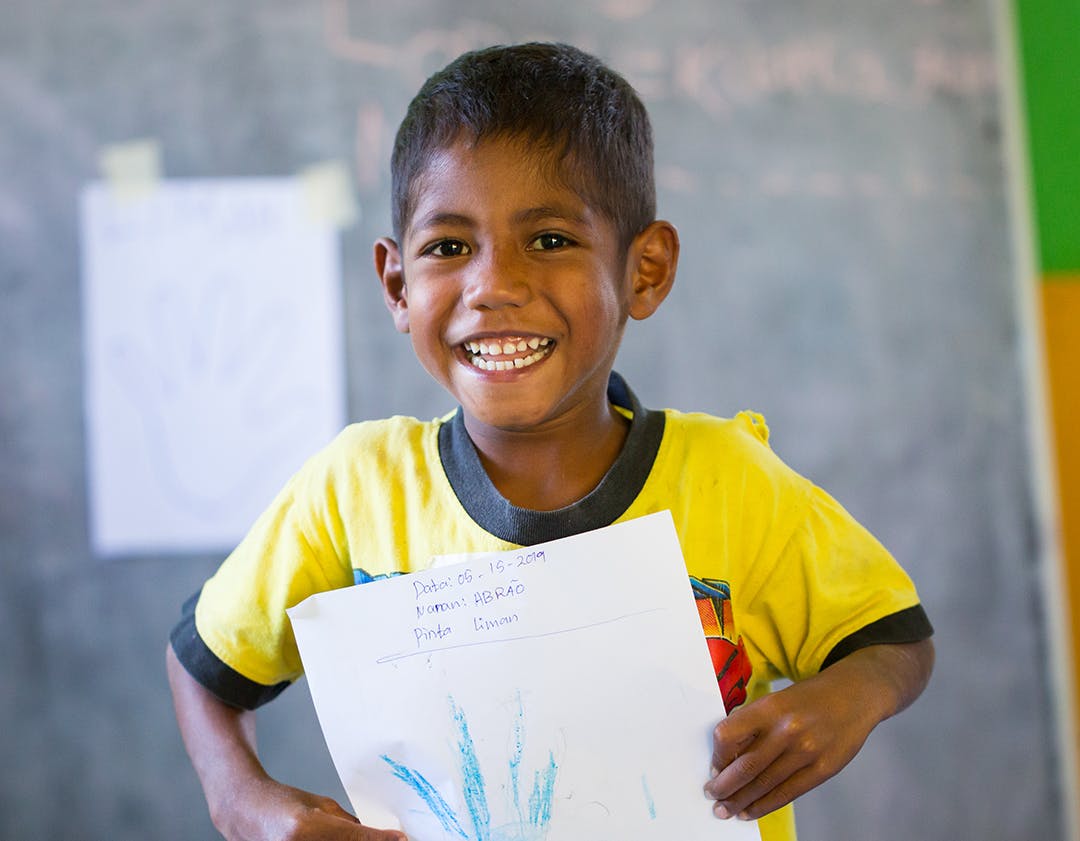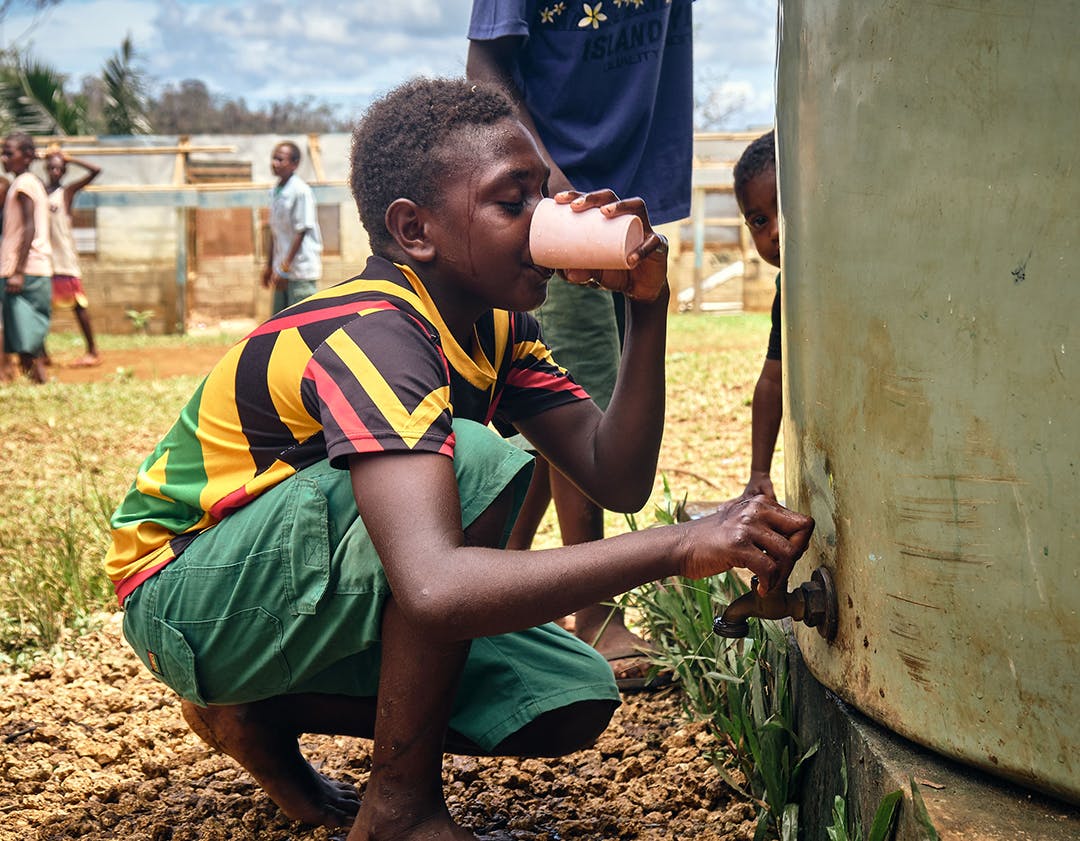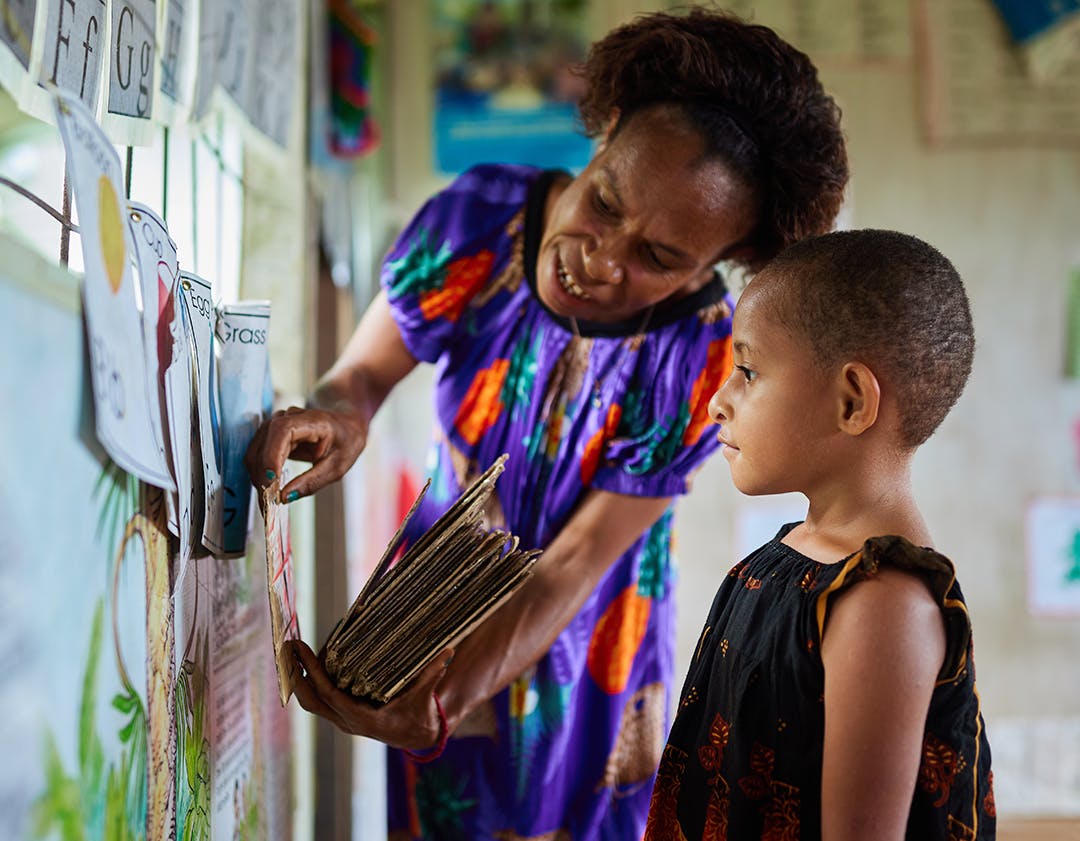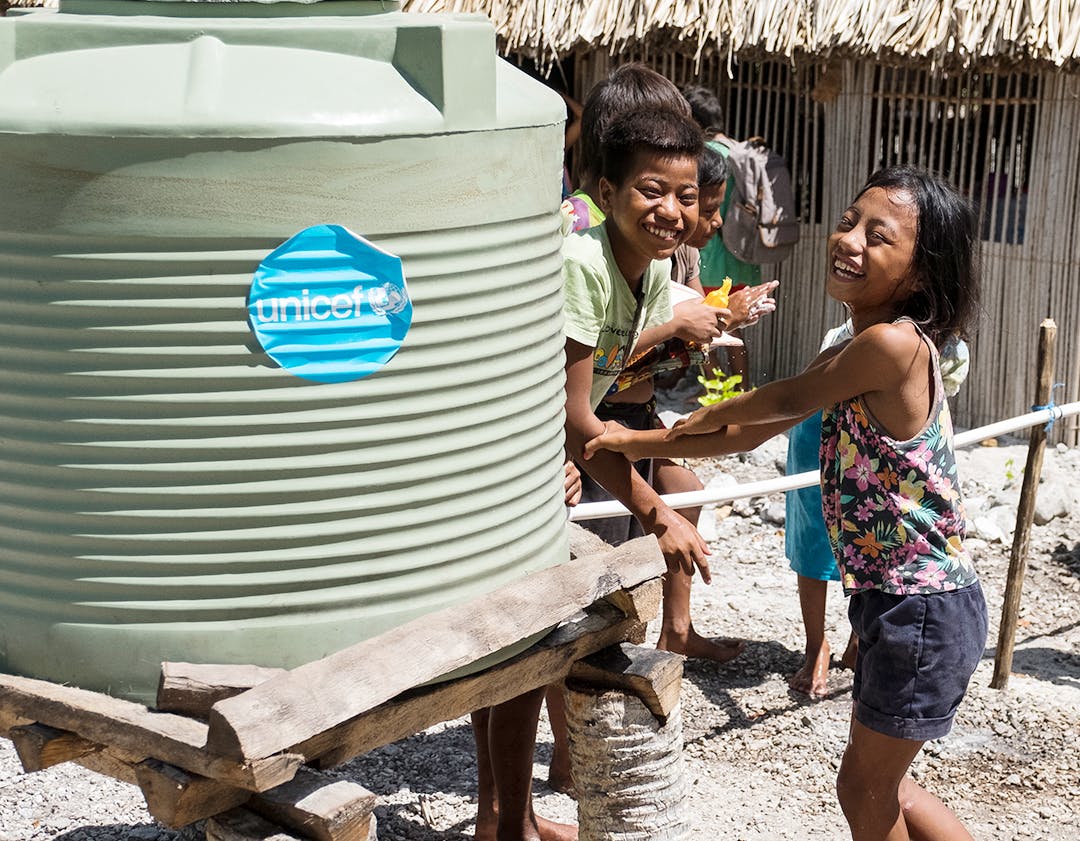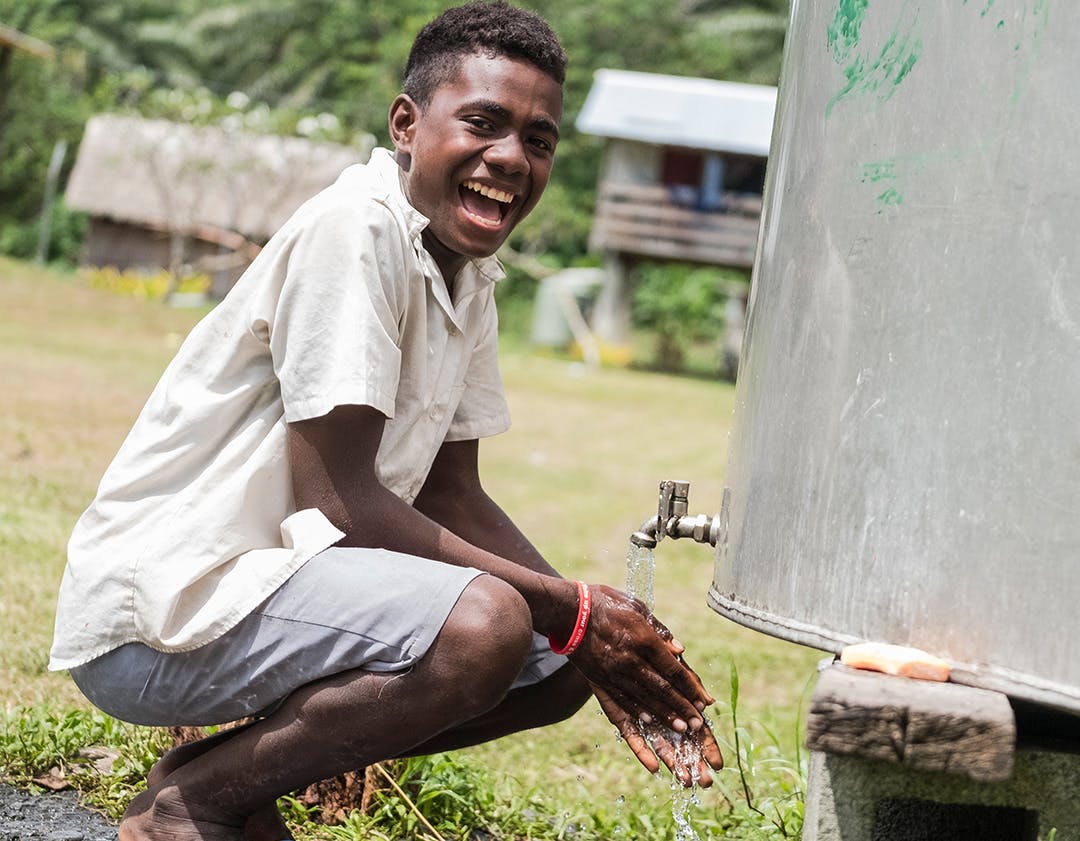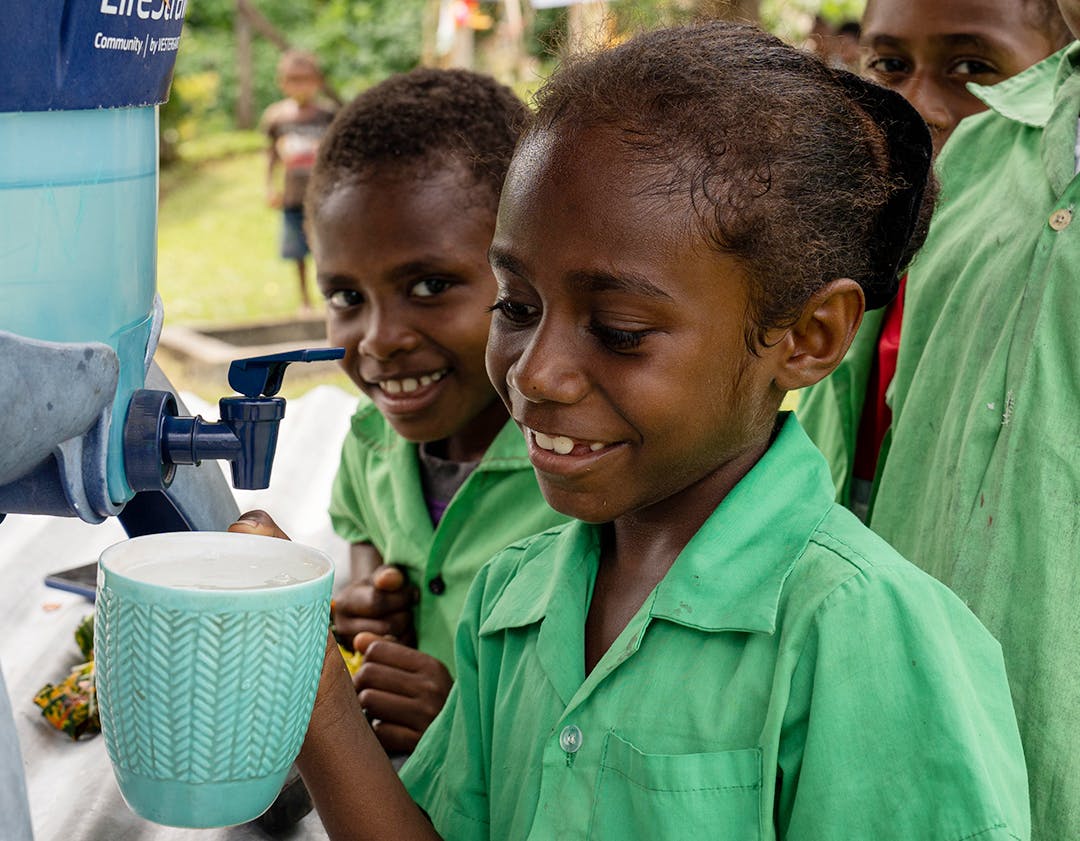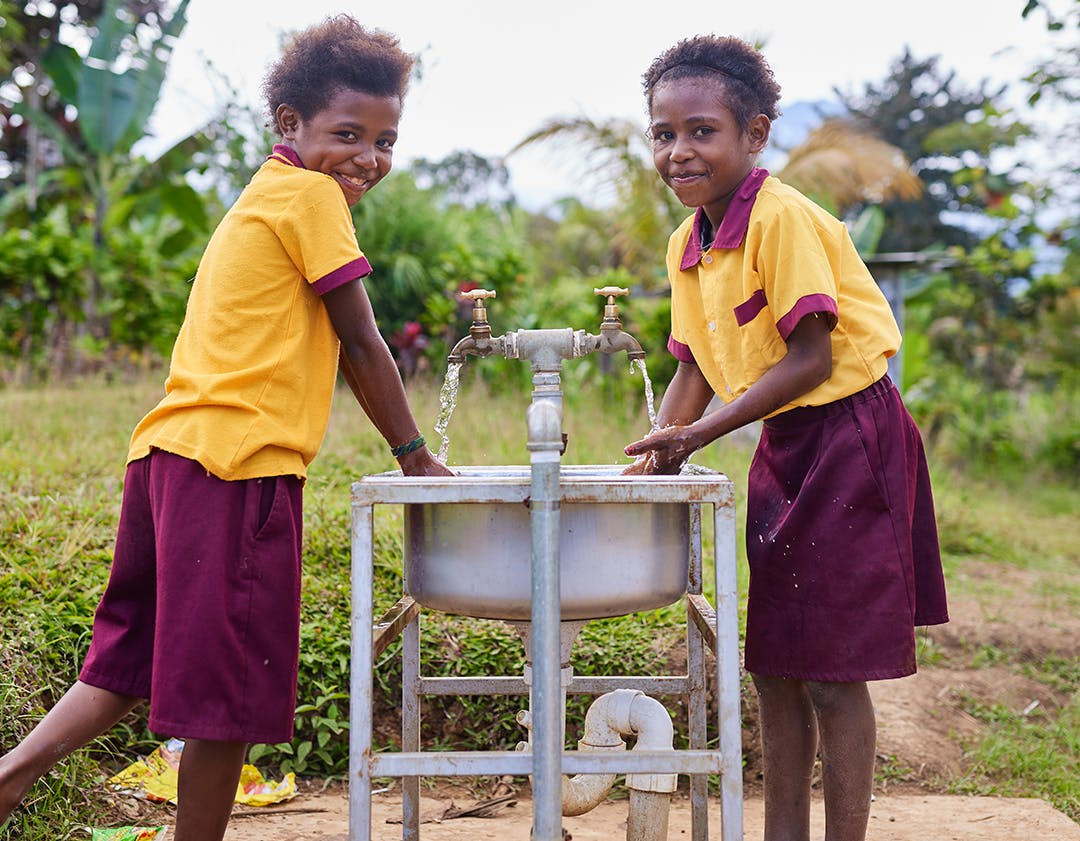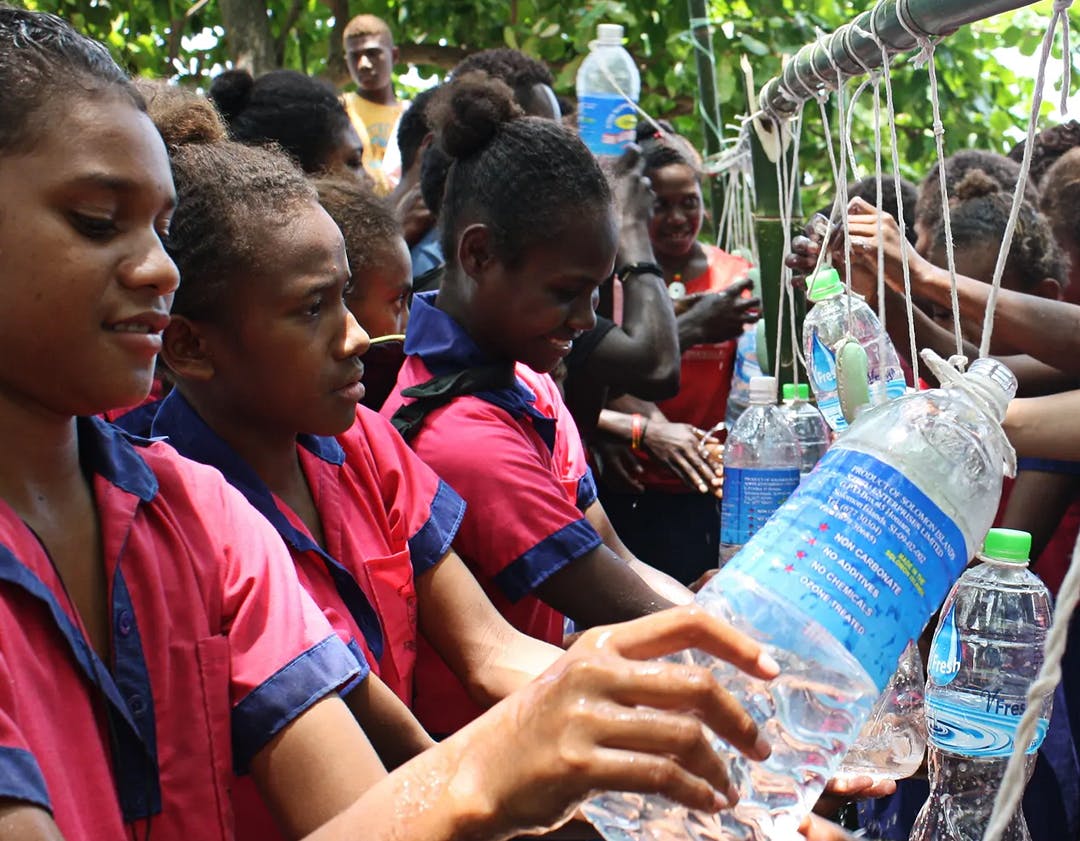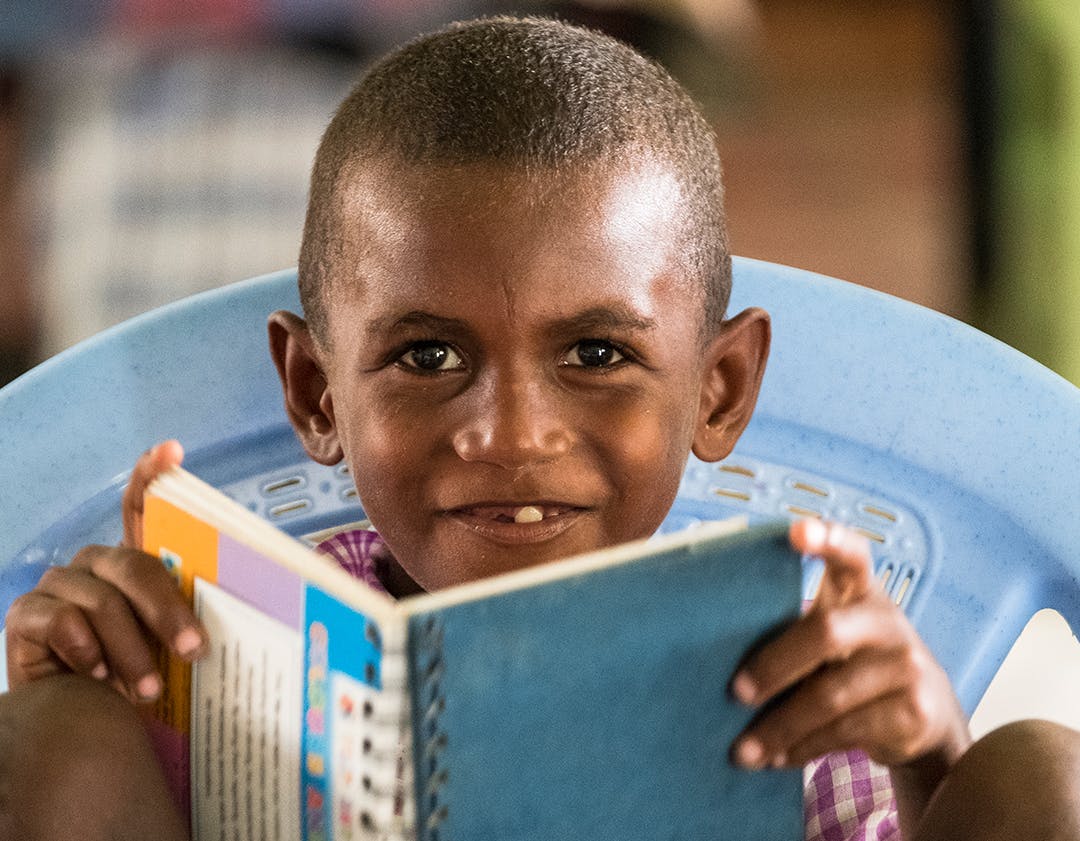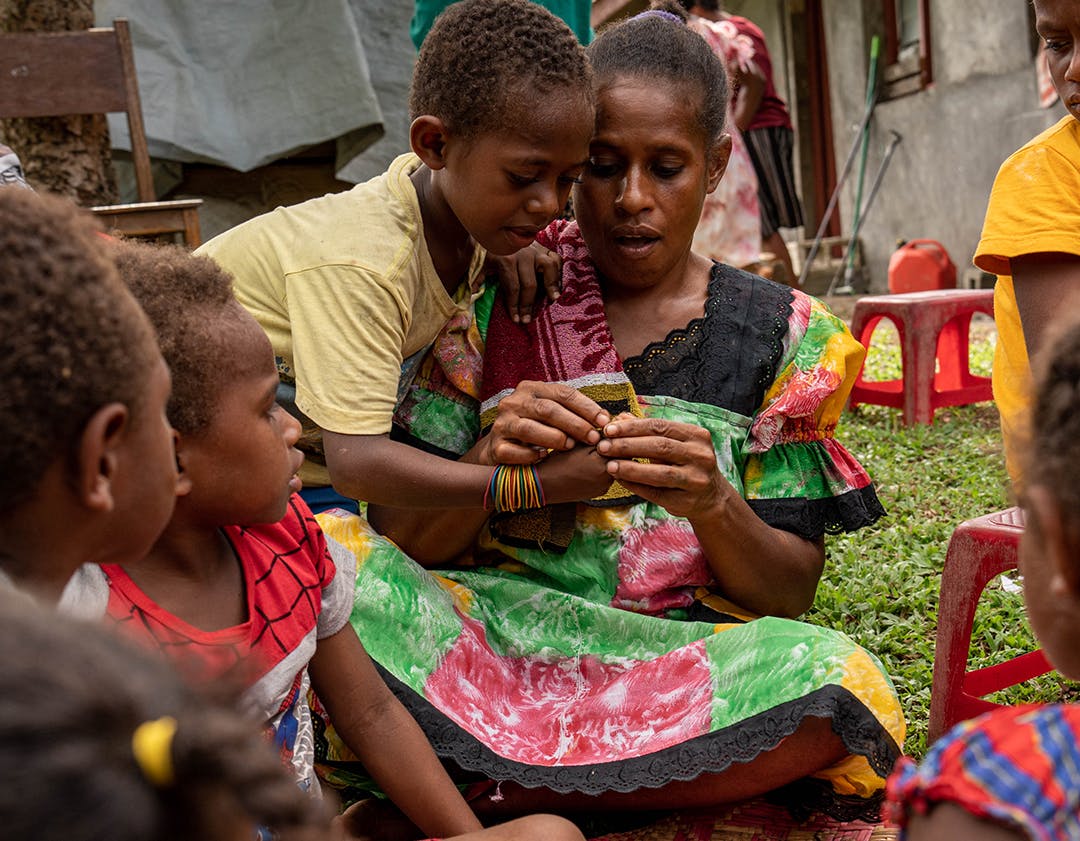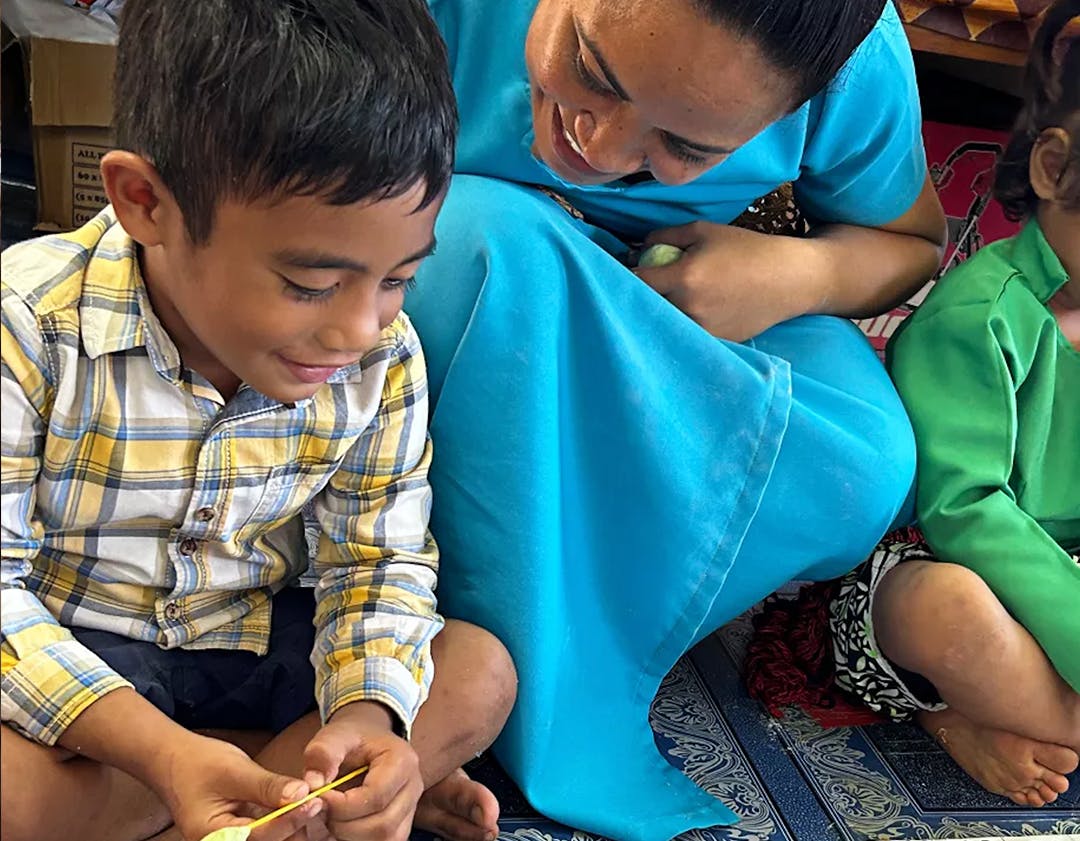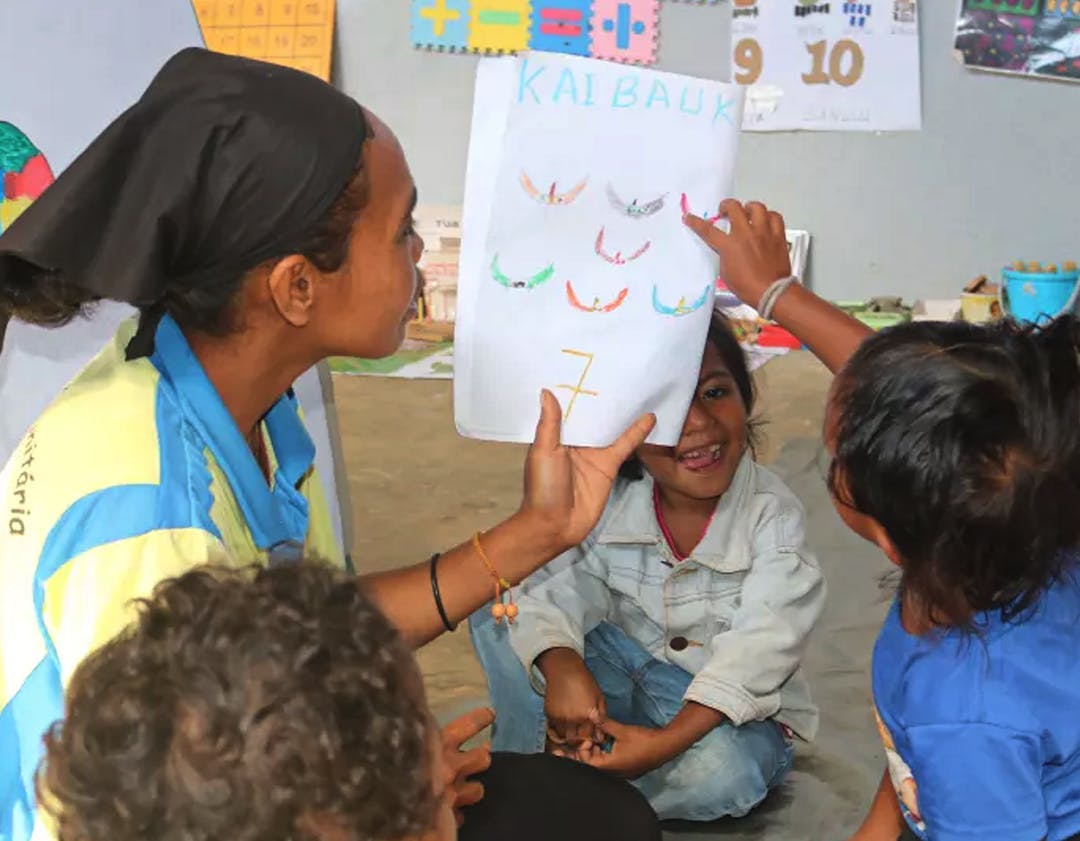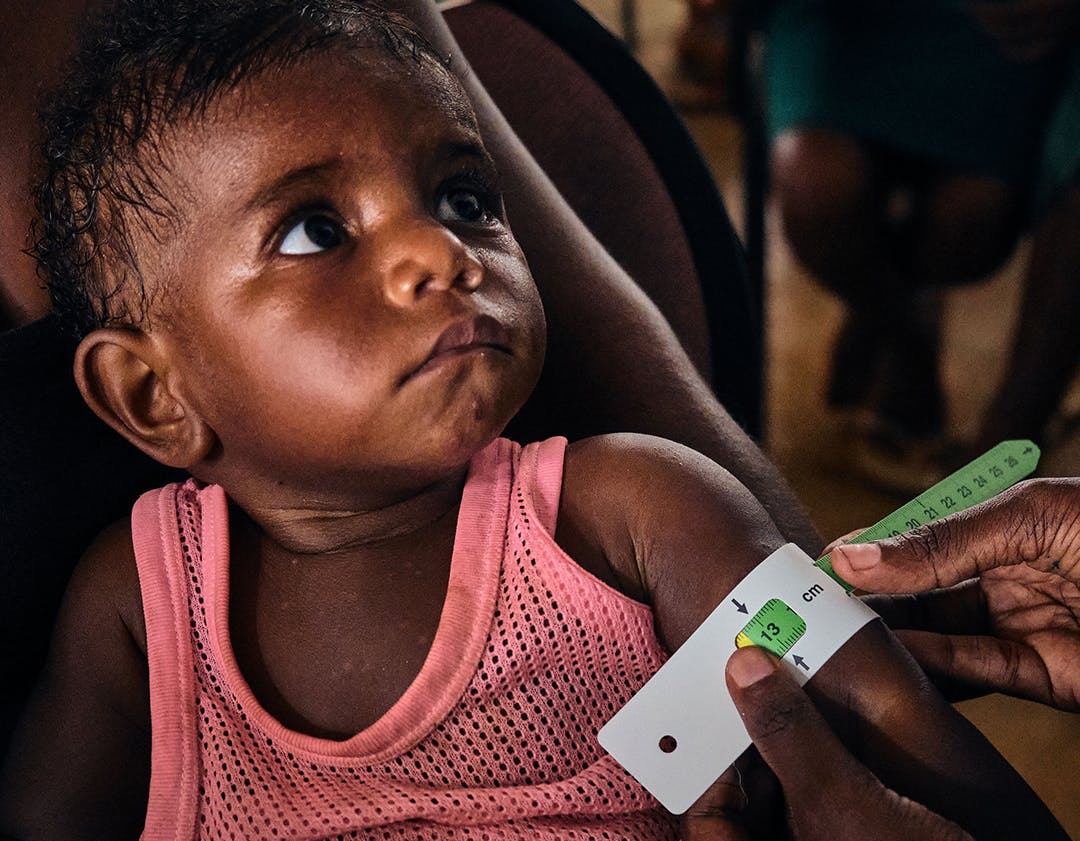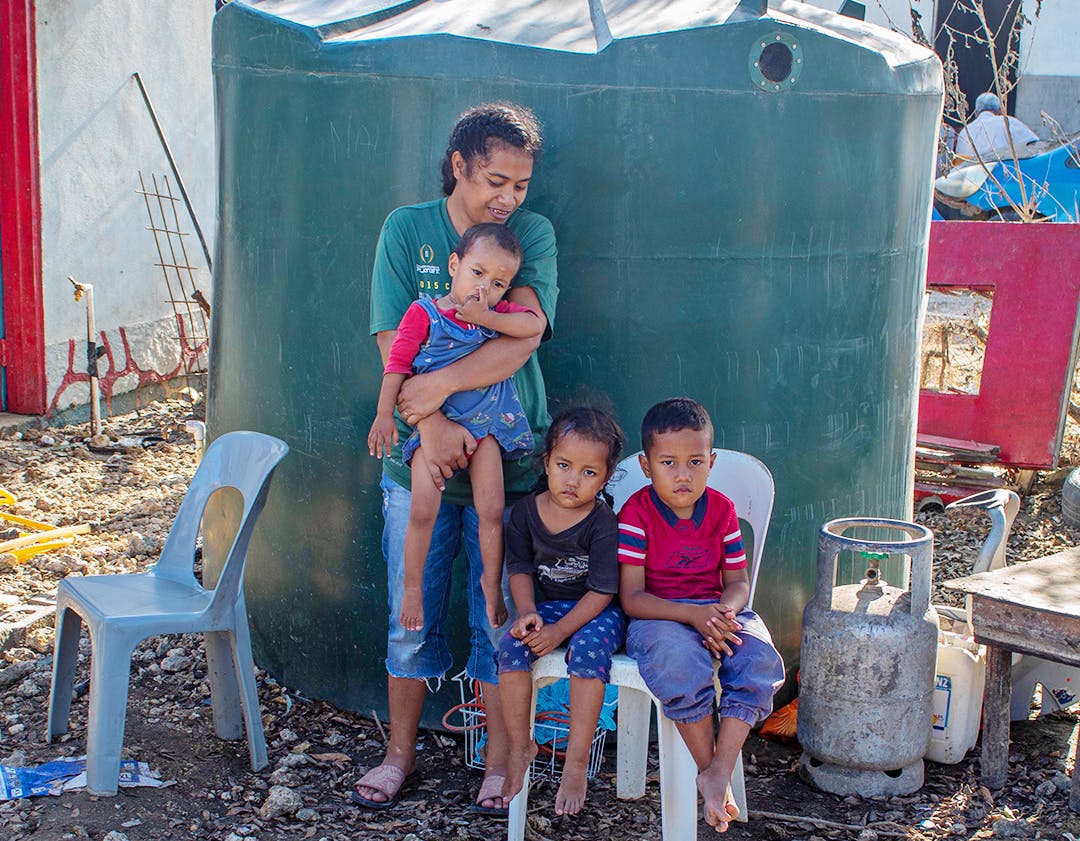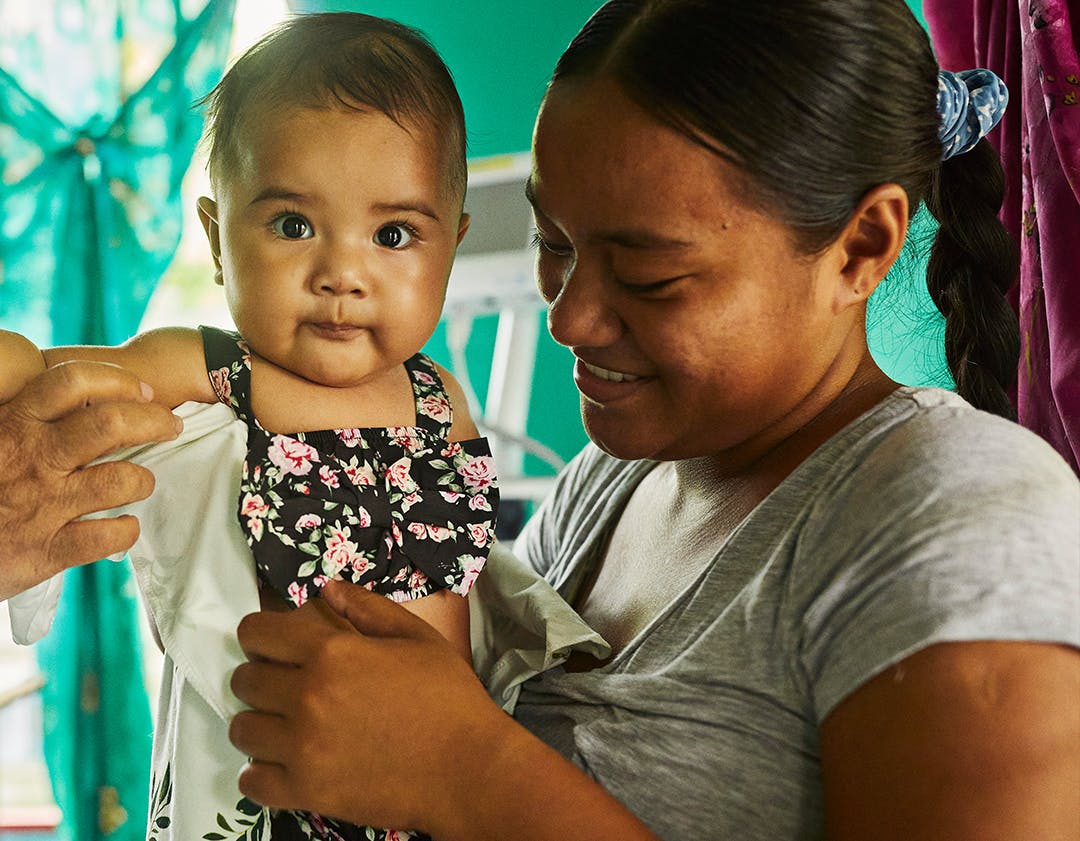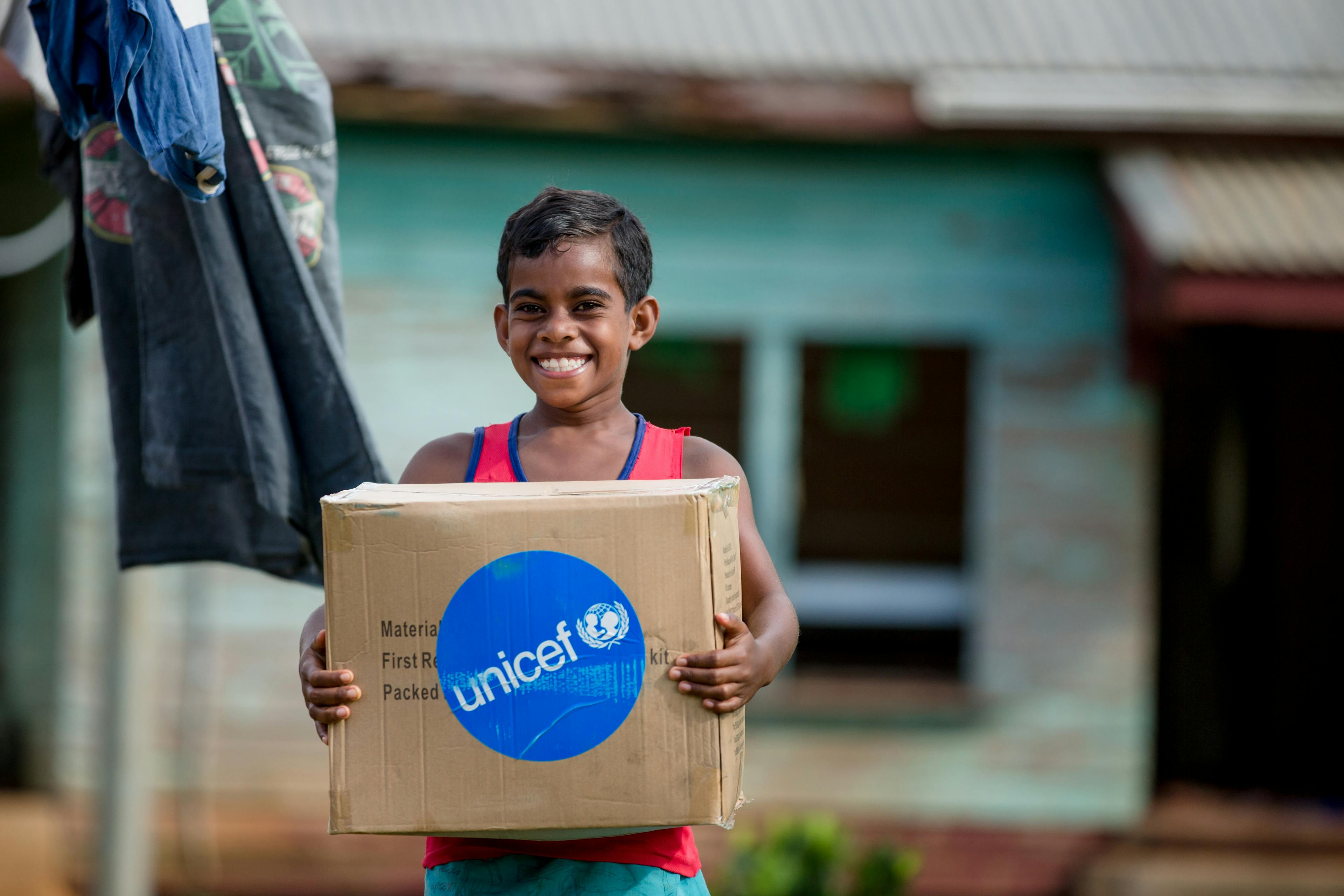
Our Work
in the Pacific
Home
Our Work
Our Work in the Pacific
For 50 years we’ve worked with our Pacific whānau doing everything we can for kids - so they can grow into the best version of themselves!
The Pacific Islands are our neighbours and it’s up to us to support them in making sure tamariki have the essentials for a happy and healthy childhood – like clean water, nutritious food and quality education.
These are some of the hardest-to-reach communities in the world that face unique challenges like extreme vulnerability to climate disasters and coastal erosion. Whether it’s reaching isolated villages with life-saving vaccines or providing off-grid communities access to clean water, we’ve created unique solutions to the major issues they face.
Our relationships with Governments, staff, communities and kids themselves drive the work that we do – from simple, sustainable projects to big-picture, national-level policy changes.
Thanks to people like you, we’ve been able to innovate and create long-lasting change for Pacific tamariki!
2.56
million
people gained access to clean drinking water since 2000
1.21
million
people gained access to basic sanitation services since 2000
$16
million
invested into the futures of Pacific kids through a groundbreaking partnership
A partnership for real change
This multi-year partnership is all about investing $16 million into making a huge impact for tamariki in five Pacific countries!
We’re working with the New Zealand Ministry of Foreign Affairs and Trade to strengthen the resilience of water systems and level-up early childhood education. Here’s some of the awesome work we’re already doing.
Kids need access to clean water for drinking and washing, no matter where they live. We’ve been building water and hygiene facilities in Kiribati, the Solomon Islands and Vanuatu so that kids will always have clean water available, even during climate emergencies.
To give kids the best opportunity to reach their full potential, we’ve been working with Governments right down to community level to strengthen the education system in Timor-Leste, Papua New Guinea and Kiribati. We’re training teachers in culturally relevant and engaging material because every kid should feel a passion for learning!
Here’s a look at what this amazing partnership is doing for kids in the Pacific.
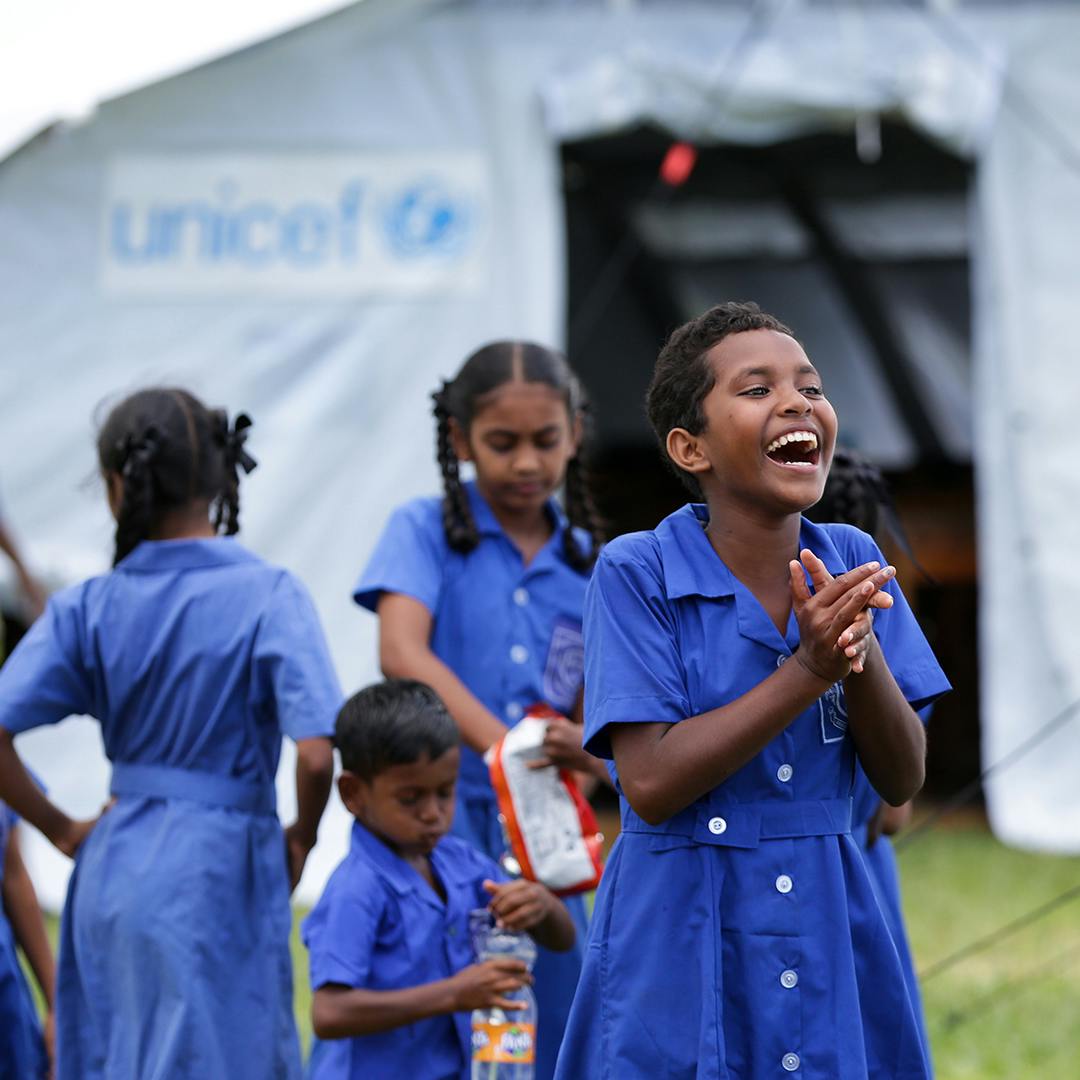
Clean water, no matter the weather!
When increasingly unpredictable weather meets out-of-the-box thinking; you get an eco-friendly solution that makes sure kids in Timor-Leste always have access to safe water.
Families get their fresh water from streams that weave across the island, but too often they experience weeks, or months, without rainfall which dries out the local springs. When it does rain, it’s short periods of heavy downpours – causing the streams to overflow into the sea.
We've come up with a solution to make sure kids and their communities don’t need to worry about where their next drink of water will come from.
We’re building dams using soil and natural materials that’ll retain rainwater during wet periods. We’re also planting lots of trees to strengthen the stability of the island – slowing erosion and recharging local springs. This will stop vital clean water from disappearing into the ocean!
Safe water will be more accessible to communities and schools, year-round, no matter what the weather has in store. Read more about our water resiliency project in Timor-Leste here.
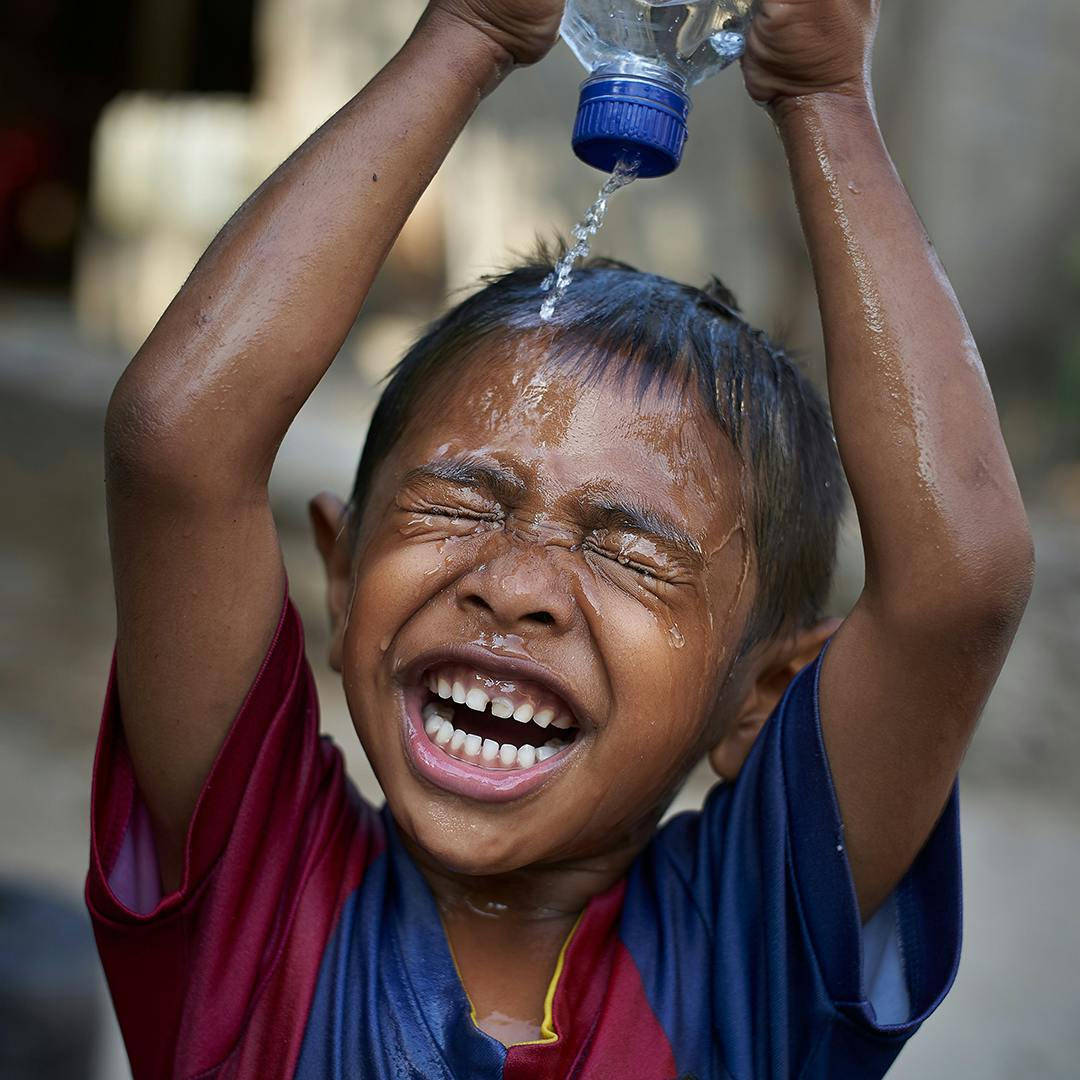
Here’s a look at what this partnership will achieve by 2026!


The Negotiated Partnership is a long game - we’ll continue making lasting change in the Pacific which will set up tamariki and their communities, for decades to come!

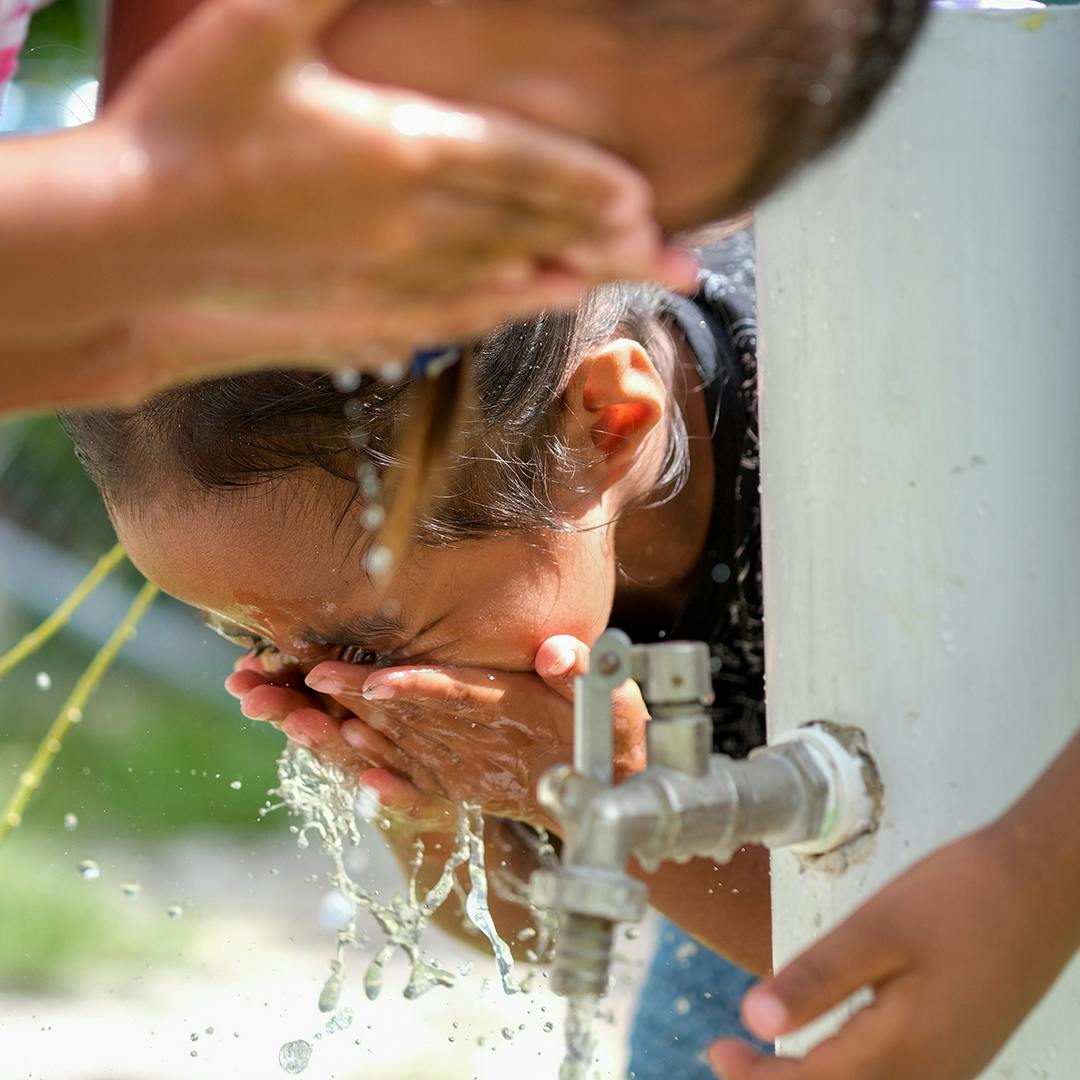
CLEAN WATER FOR
PACIFIC TAMARIKI
Clean water is the key to life!
Without access to clean water, the nutrition, health, education and every other aspect of children’s lives are affected. With increasing costal erosion and major storms because of climate change, water sources across the Pacific are being contaminated.
But every day, we’re working with Governments and local partners to improve climate-resilient water and sanitation services across the Pacific – so kids don’t need to worry about the water they drink.
The DC10 Fund
We’ve partnered with one of Aotearoa’s favourite sports stars, Dan Carter, to shine a light on the issues facing kids in the Pacific, like access to clean water at home and school.
In 2022, we hosted the Kickathon, a fundraising event where he pushed himself to the limit by kicking goals for 24 hours straight! More than 1,500 kicks later, over half a million dollars was raised thanks to generous Kiwi donors like you.
After partnering with the New Zealand International Development Cooperation, we were able to invest a further $2.5 million in matched funding into water, sanitation and hygiene programmes for kids in the Pacific.
Then we took the Kickathon to the next level! In 2024 at Eden Park, DC set the Beat Dan Carter challenge and asked all of Aotearoa to beat his score of 273 goals using one ball, one tee, in one hour. 472 individuals, 55 teams and over 12,000 kicks later and we raised $138,594, to help Pacific tamariki get access to clean water.
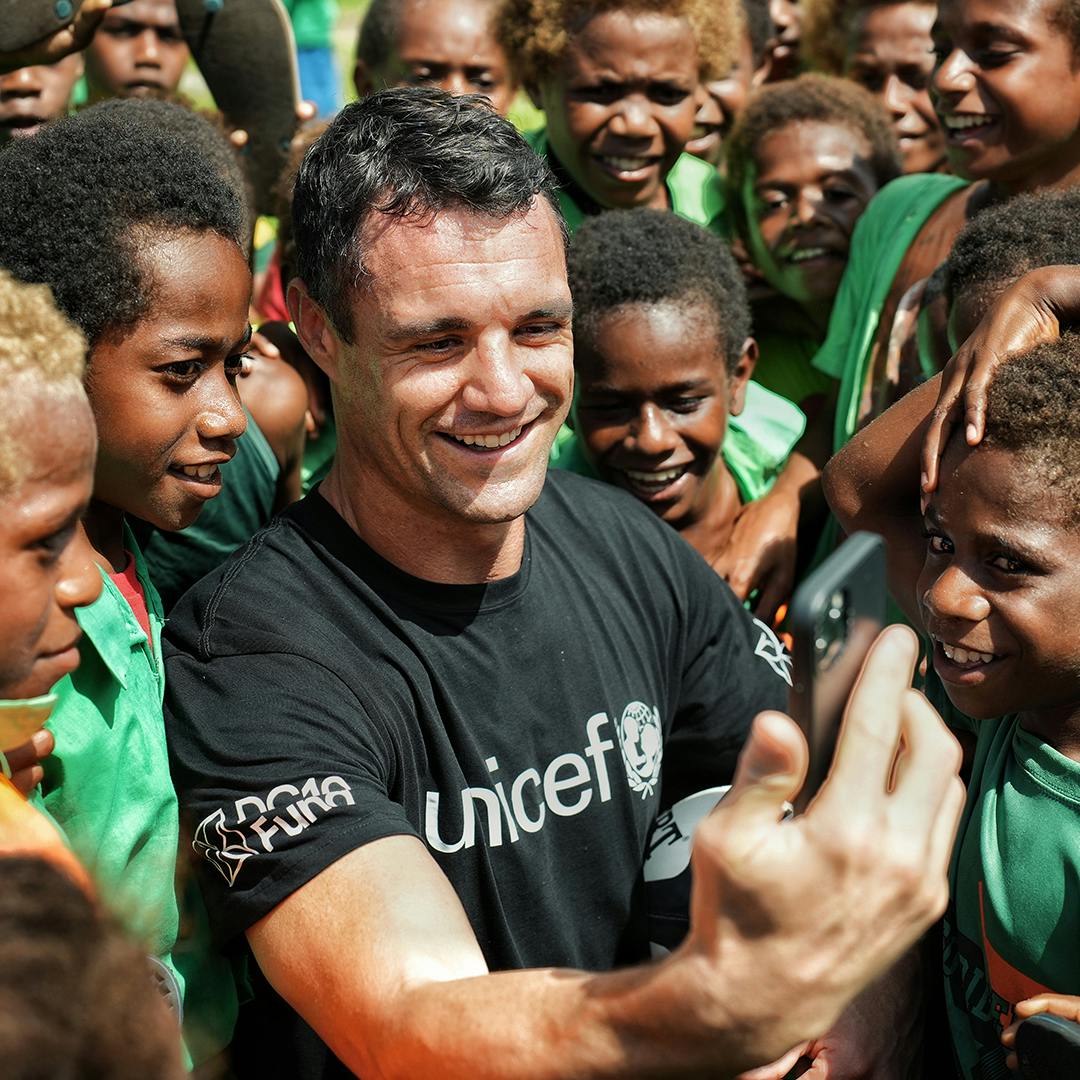

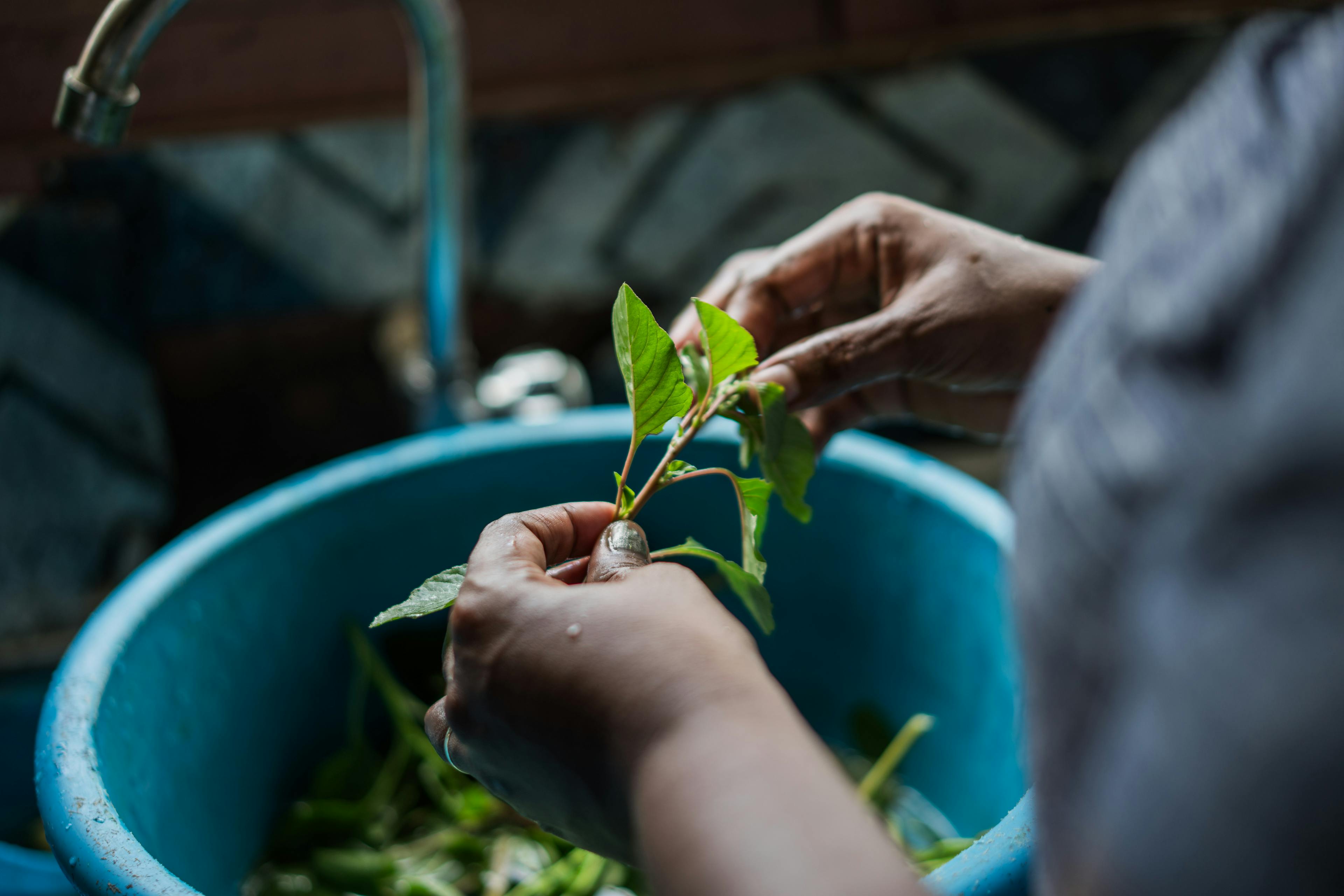
NUTRITIOUS FUEL
FOR PACIFIC KIDS
When kids are eating well, they’re more energized, less likely to get sick, and able to focus on learning and playing!
Emergencies like cyclones, droughts and tsunamis are becoming stronger and more frequent because of climate change – and it’s impacting crops of nutrient-rich produce in the Pacific Islands. Parents are having to reach for imported, processed foods to feed their families and it’s affecting the health of Pacific tamariki.
To tackle this problem, we’ve developed a nutrition plan with Pacific Governments - creating new policies and legislation, nutrition advocacy and promoting healthy diets.
Pacific Kids Food Revolution
A fun and unique way to engage kids about healthy eating!
Pacific Kids Food Revolution is a children’s cooking show created by UNICEF that’s being rolled out in Fiji, Palau, Republic of Marshall Islands, Samoa, Solomon Islands, Tonga and Vanuatu.
The show promotes the importance of a balanced, healthy diet – especially when you’re still growing! Contestants use fresh, nutritious and local ingredients that get kids excited about growing their own produce and cooking at home.
“While on the show, I learnt how to include the three food groups into my daily meals, and how to make them with local fruits and vegetables, which is so important for a growing child” said Gabriel Jumar, 13.
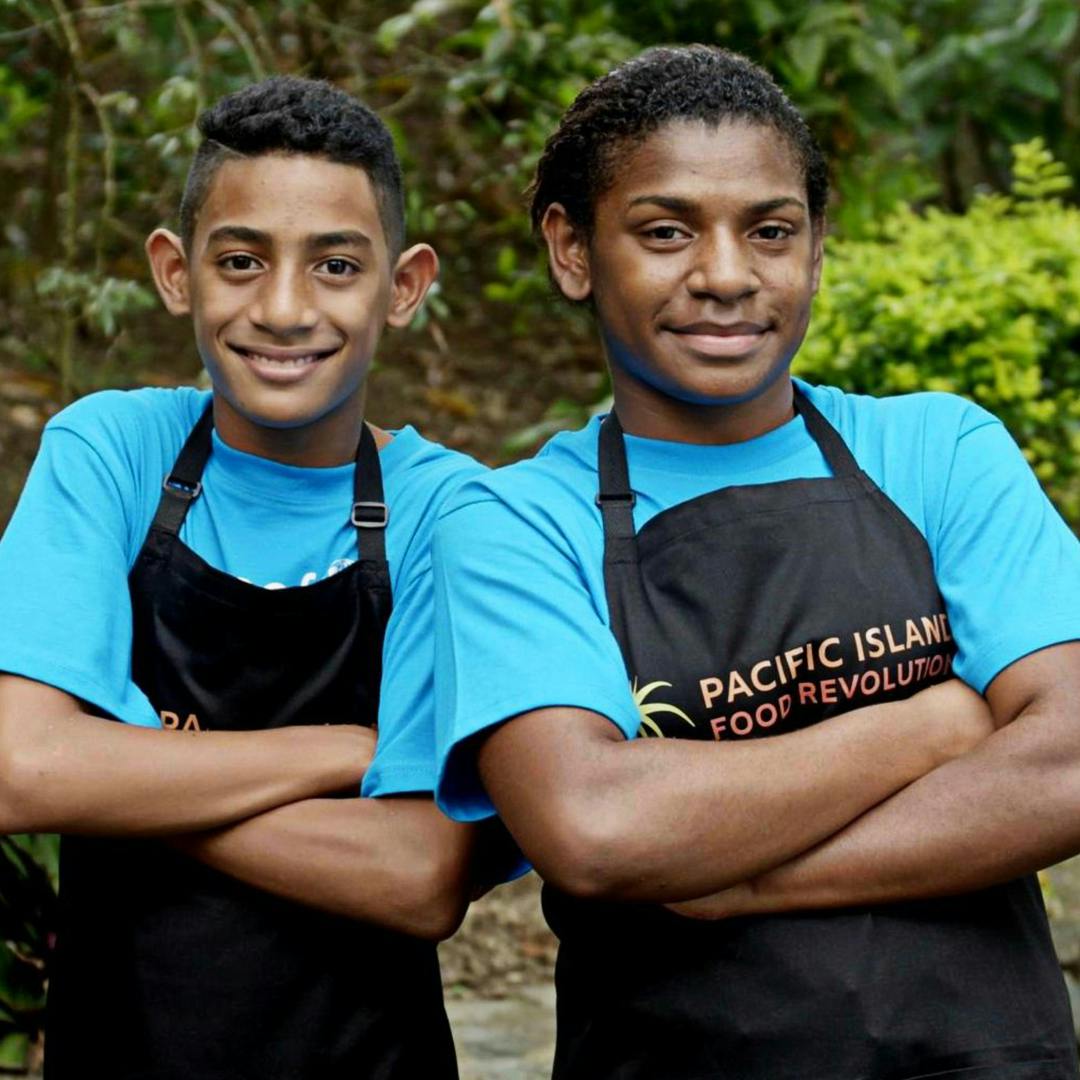
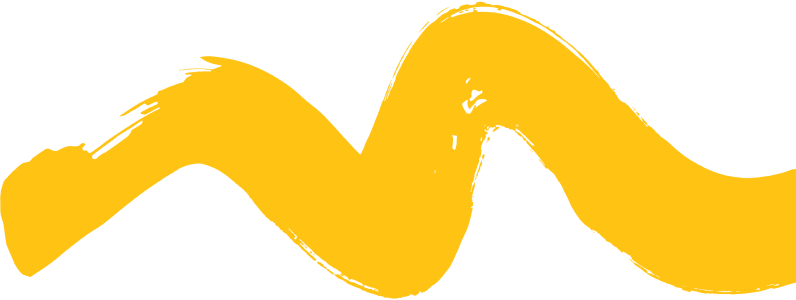
Education rich in culture!
Brains are built over time and from the bottom up!
The first 1000 days of a kid's life is crucial in shaping their development, which is why early childhood education is so important. We’re investing in quality pre-primary education for kids in Pacific so they can unlock their full potential.
EDUCATION AT
YOUR FINGERTIPS
We’ve shattered the barriers between kids in remote places getting access to education!
Millions of kids around the world are getting stuck into unleashing their future potential with the Learning Passport, a groundbreaking digital platform that hosts hundreds of lessons across a huge range of topics.
We worked with Microsoft to develop the web and mobile app that can used offline in areas without internet connectivity - where kids need it the most. It was selected as one of TIME’s Best 100 Inventions of 2021 and is accelerating access to quality education for every child!
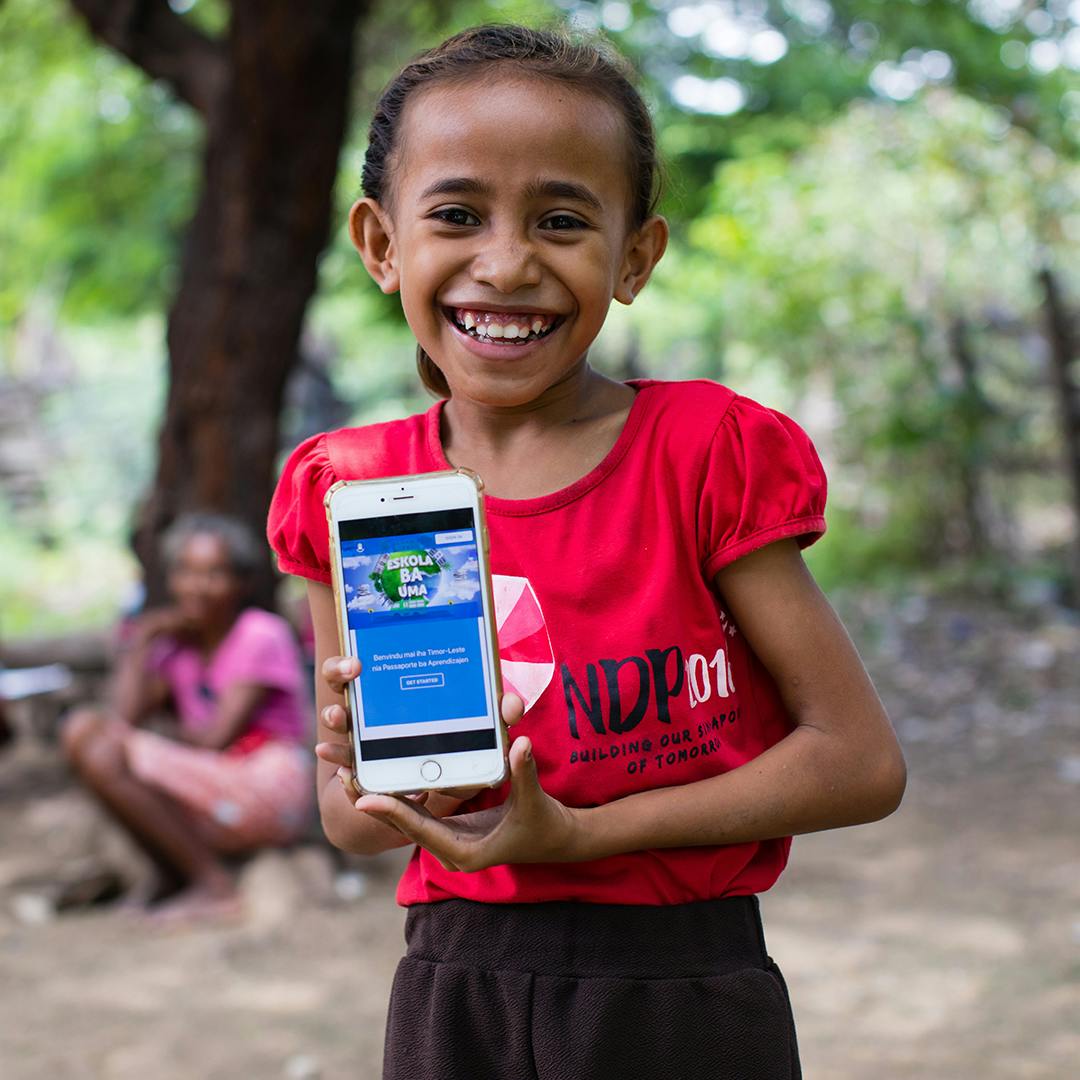
Breaking the cycle
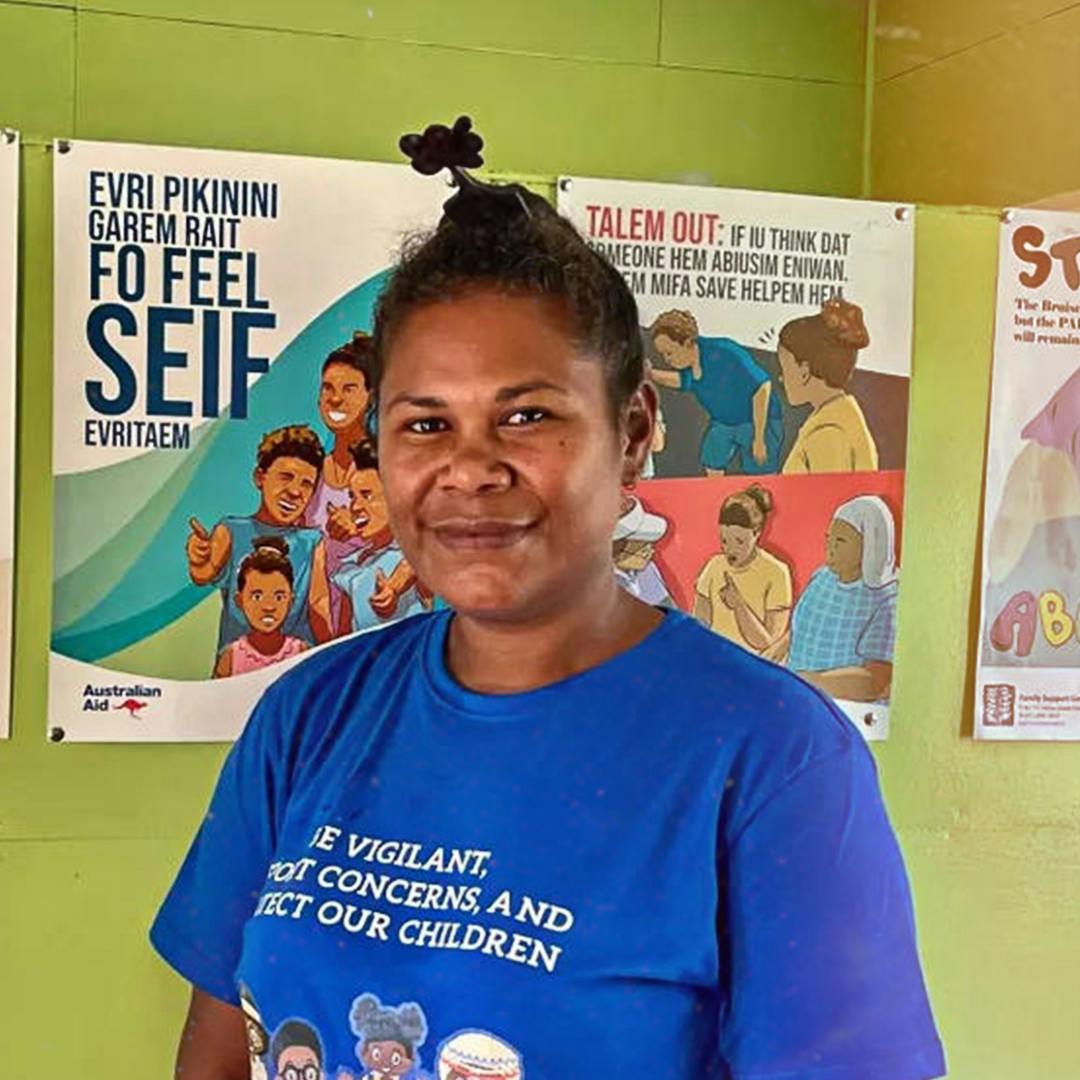
When kids grow up around physical or emotional abuse, it negatively impacts their emotional wellbeing and development.
We work with Governments to strengthen child protection laws and support local organisations to make sure kids feel safe, loved and supported at home.
Social workers like Regina in the Solomon Islands dedicate their life to being there for kids and parents experiencing hardship.
This year alone, 1,000 kids in the Pacific have benefitted from child protection services while 500 police officers and community leaders have received training on safeguarding children.
Innovative health solutions!
The Pacific is home to some of the most remote communities in the world, presenting a lot of challenges in the delivery of lifesaving vaccines and medicines. To overcome these obstacles, we needed to innovate and think differently... which is where our drone delivery service comes in!
In 2018, the future of healthcare changed forever when, after months of testing and practice runs, the first ever drone-delivered vaccine landed in Vanuatu. Transported in Styrofoam boxes lined with icepacks, the vaccines successfully landed in Cook’s Bay – an off-grid community that’s cut-off from the nearest village by 40 kilometres of rugged mountains.
The village can only be reached by foot or small boats and has no electricity or healthcare, leaving kids vulnerable to preventable diseases. This made it the perfect candidate for our first delivery! The vaccines were administered to local kids and pregnant woman, who are now protected from getting sick thanks to some out-of-the-box thinking.
This is a massive leap for global health and a game changer for bridging the last hurdles to reach every child.
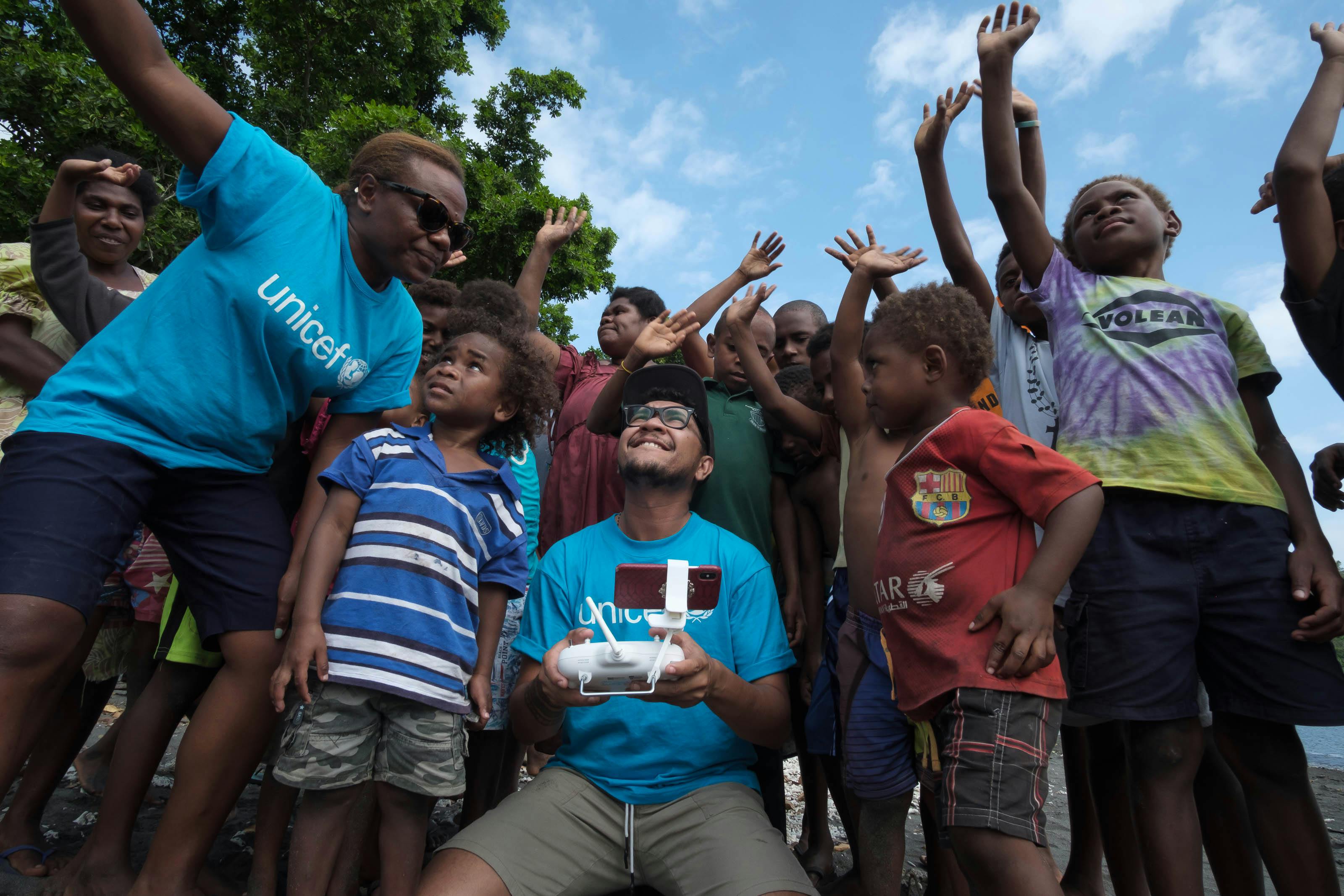
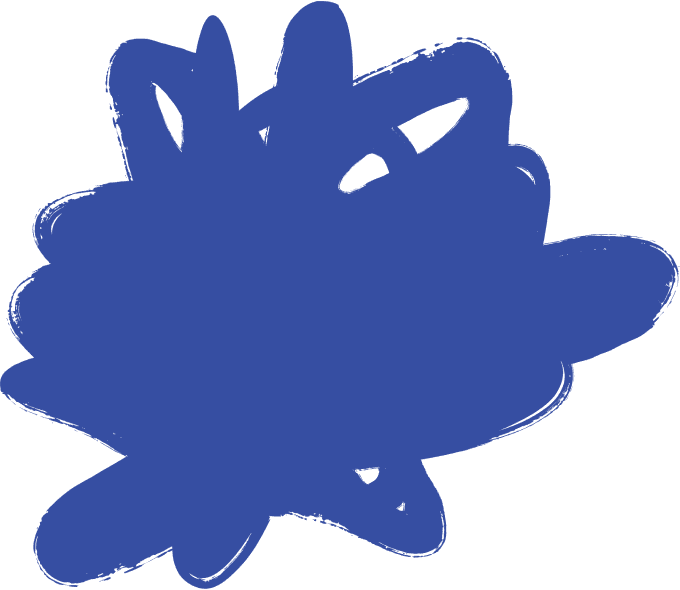

RAPID EMERGENCY
RESPONSE
The Pacific Islands are the most disaster-prone in the world. As the effects of climate change ramp up, emergencies like cyclones and floods are becoming more severe and frequent - which is why getting life-saving supplies to isolated communities is crucial.
Whenever there’s an emergency or outbreak, we’re on the ground within 48 hours to deliver critical resources like medicine, clean water, food and shelter. Our supply hubs in Suva and Australia are restocked before the cyclone season, so we're always ready to jump into action.
Our experience with local partners in Pacific communities helps us to deliver supplies that are needed the most. We don’t go anywhere after emergencies end – we're there for the long-haul, helping communities build back better and stronger than before.
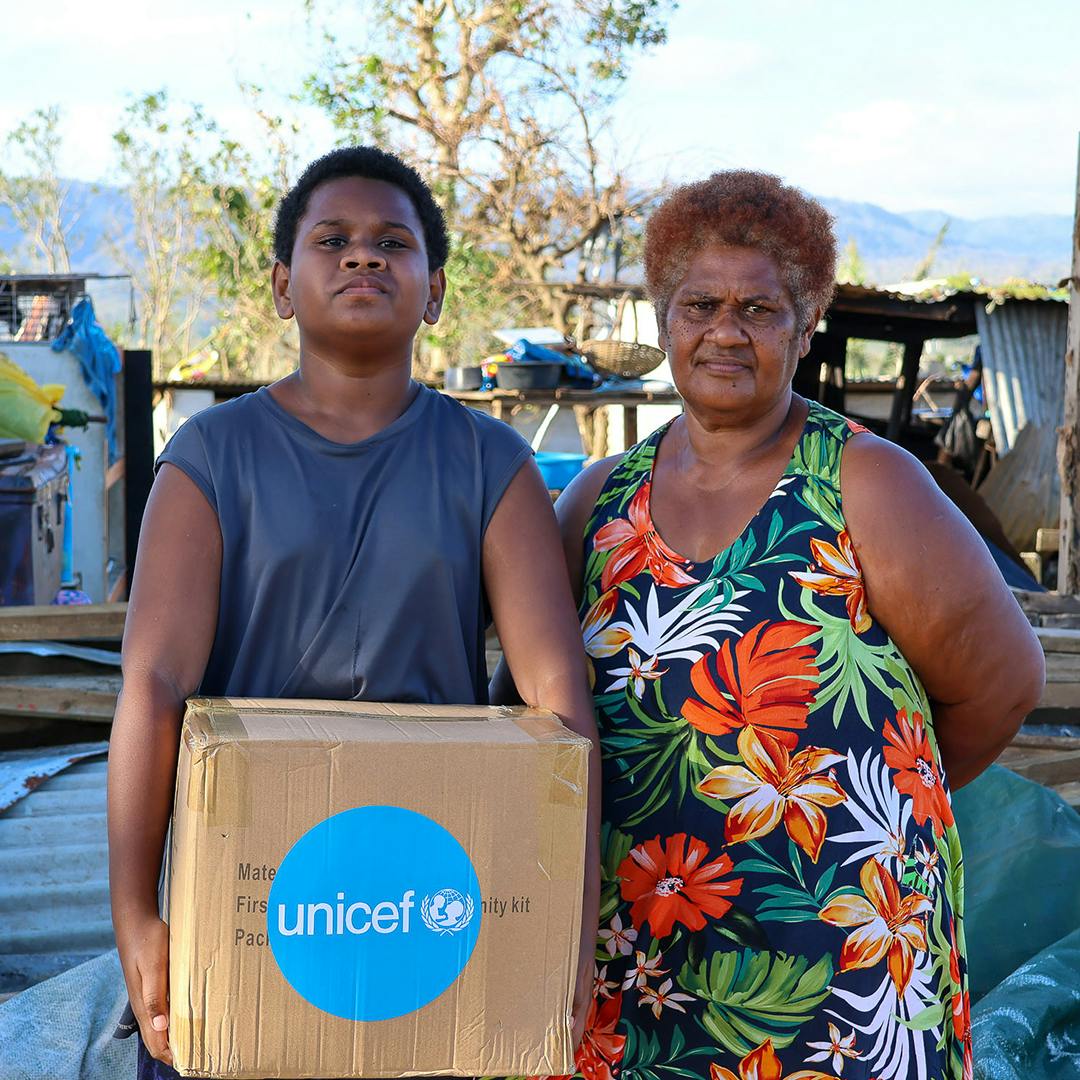
A world first!
The Today Tomorrow Fund is a world first in disaster financing!
Designed to protect kids from the impacts of climate change, it’s an initiative launched by UNICEF to provide funding for kids and their communities in the aftermath of climate emergencies – delivering rapid finance for relief and recovery, while minimizing hazards before they strike. How cool is that?
The fund is being piloted for 3 years and it’s all starting right here in the Pacific! Fiji, the Solomon Islands and Vanuatu are included in the pilot phase and eventually, the goal is to reach one billion children living at risk from the impacts of climate change.
The fund will also invest in strengthening practical solutions with Governments for long-term climate resilience while building a low carbon future.
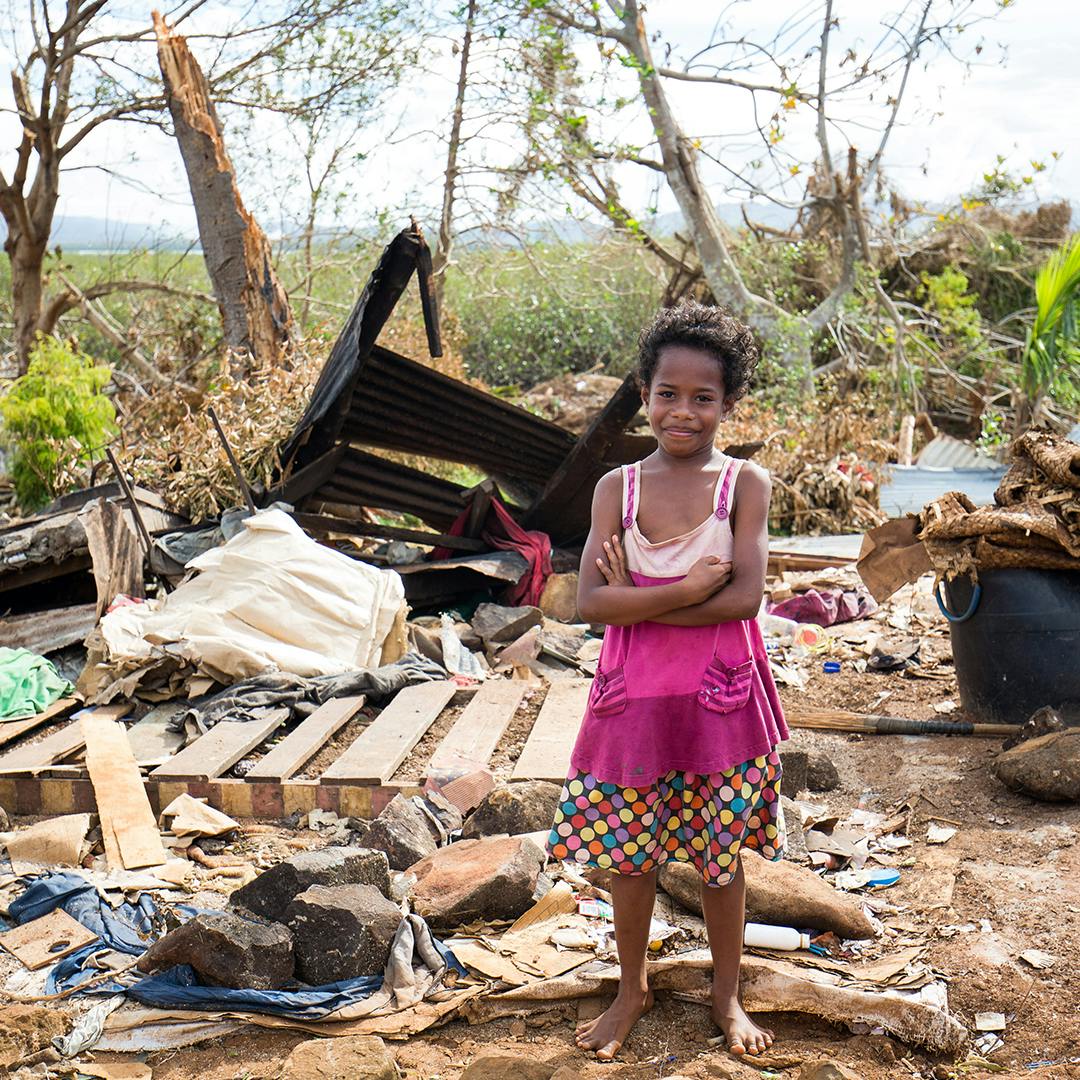

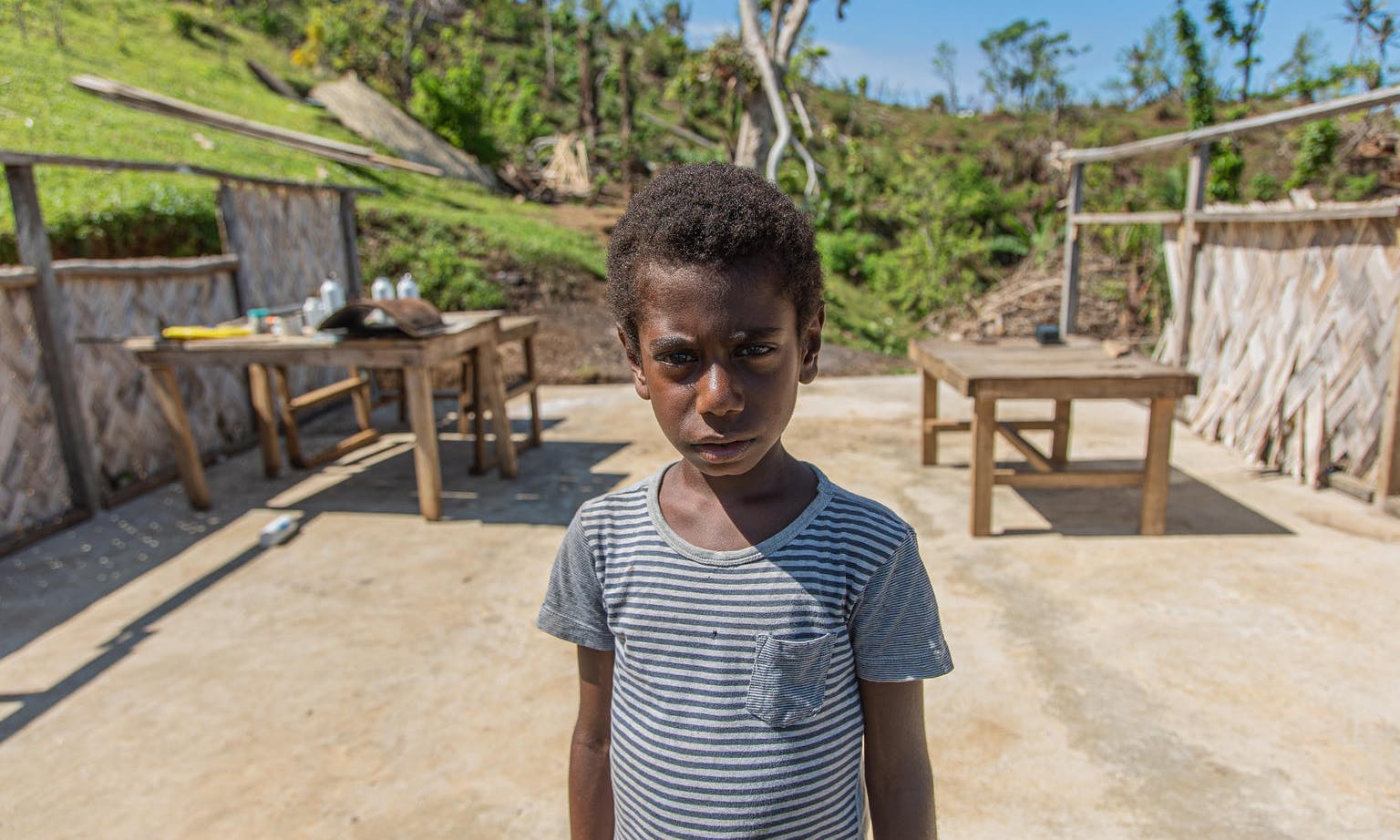
Weather-related disasters led to 43.1 million displacements of children over six years
Children in the Pacific islands of Vanuatu and Fiji featured highly on a per capita basis, with both countries in the top ten for proportion of children displaced by weather related events.
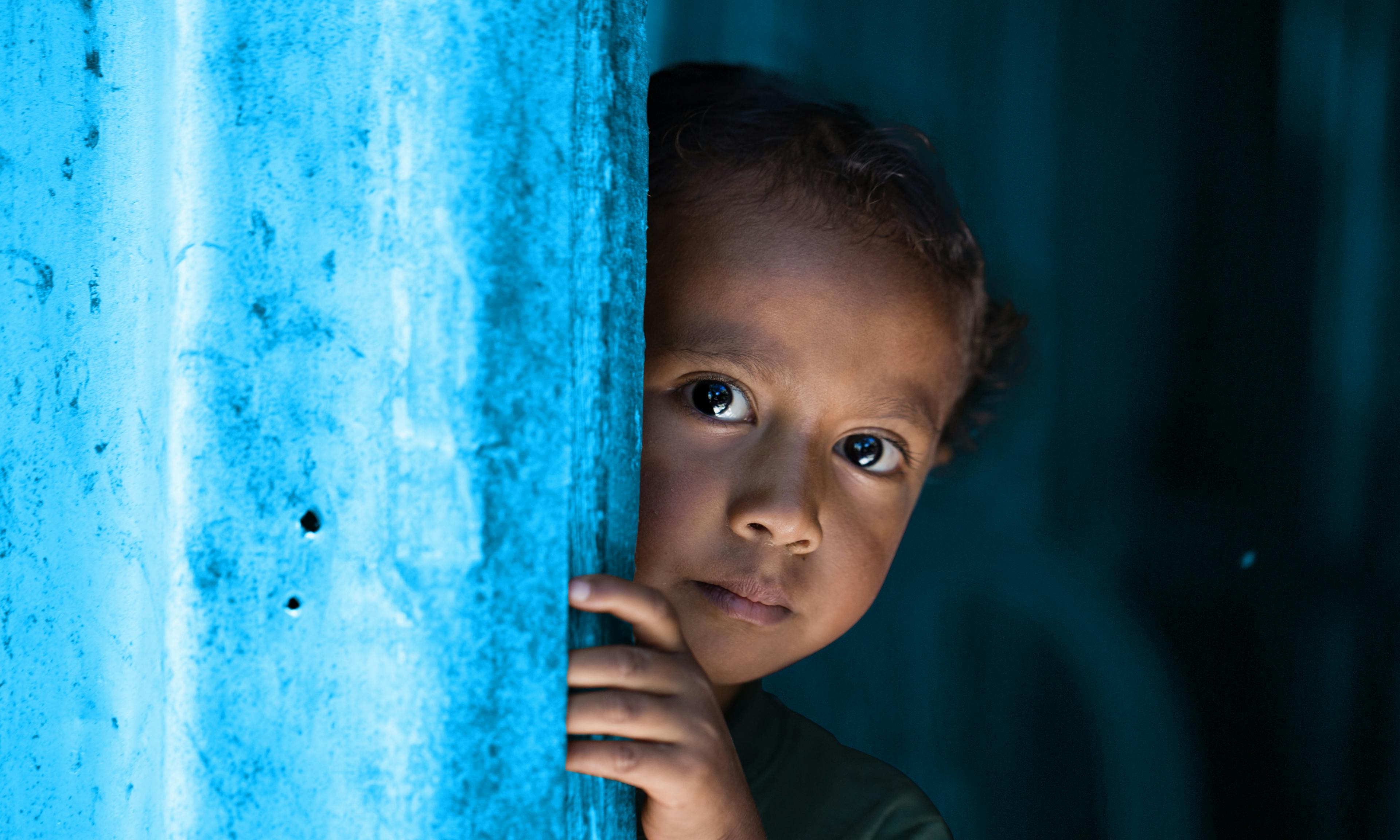
New report reveals harrowing scale of child protection crisis in the Pacific
A sobering new report details for the first time the shocking levels of physical, emotional and sexual violence, as well as neglect, faced by children living in the Pacific and Timor-Leste.
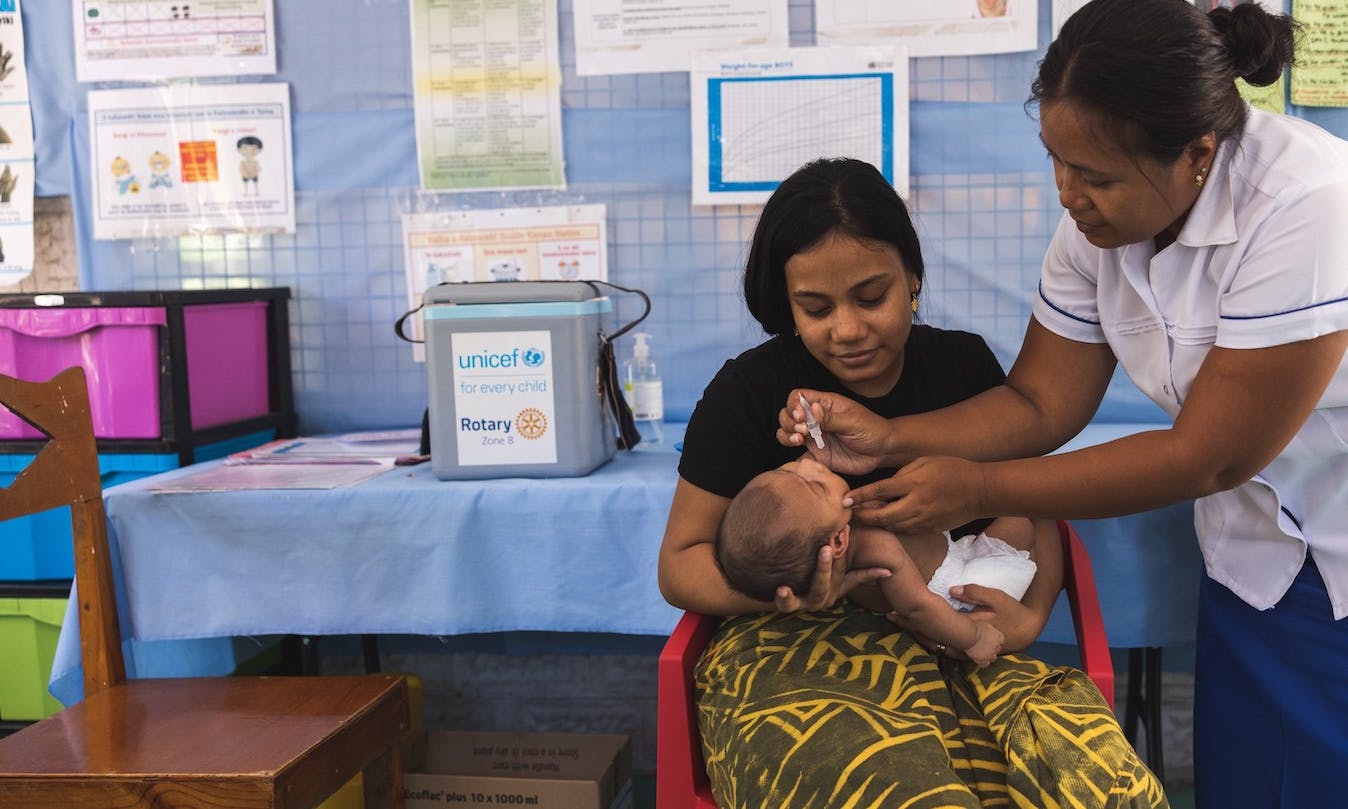
UNICEF and Rotary: protecting 100,000 Pacific Island children from life-threatening illnesses.
A Rotary and UNICEF immunisation program will protect up to 100,000 children in nine Pacific countries from potentially deadly illnesses including Rotavirus, Pneumococcal disease and Human Papillomavirus.
